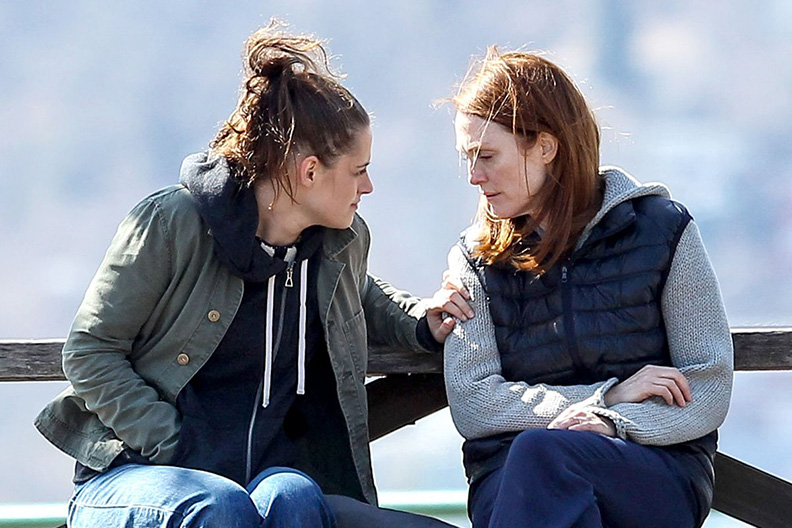Still Alice
Directors: Richard Glatzer, Wash Westmoreland
(Blu-ray/DVD)
A
If Requiem for a Dream’s Sara Goldfarb taught us anything, it’s that films can be painful to watch. Richard Glatzer and Wash Westmoreland’s Still Alice, an adaptation of Lisa Genova’s novel of the same name, gently guides us through the fields of cinematic sorrow that many works have done before. But it also puts forth something paradoxically raw, depressing and oddly uplifting that ultimately separates it from the majority, and Julianne Moore’s performance is nothing short of soul-trembling.
Celebrating her 50th birthday, Alice Howland (Moore) leads a successful career as a renowned linguistics professor. Her family is never too far; John (Alec Baldwin), daughters Anna (Kate Bosworth) and Lydia (Kristen Stewart), and Tom (Hunter Parrish) are frequently in the company of their mother. After a few mental missteps spur Alice to visit a neurologist, she receives a terrible confirmation: a rare case of familial Alzheimer’s, a disease that rapidly degenerates her mental faculties. Likewise, Alice discovers that her fatal gene was passed on to her eldest daughter. This, paired with her failing memory, snowballs into a few years of guilt and confusion. With a bit of stubborn resolve, Alice fights to find solace with her family and career before she loses her thoughts entirely.
Still Alice is one of the most subtly moving films since Michael Haneke’s Amour. Melodrama is cast aside as the everyday interactions the eponymous character has are carefully examined, repeated and dissected once more. Minute changes grow apparent with each passing scene, and as Alice’s condition worsens, these casual encounters become more taxing to view. Strung along by glimmers of ultimately false hope and inevitability, the late Glatzer and his wife Westmoreland embody terminal illness precisely. As was often mentioned upon its release, this focus could serve as a biographical reflection of Glatzer himself, who lost his battle with ALS in March.
The trying nature of Alzheimer’s echoes through the duration of the film. Some instances begin relatively normal, like when Alice jogs upon her school’s campus or peaks into her beachside home for a brief bathroom break. But a wave a confusion and anxiety washes over her as she is unable to recall her current action. Other times, we feel as though we’ve witnessed a small victory, such as when Alice loses her phone seemingly for a day when it had been well over a month. Other minor changes convey this lost sense of self.
Like Amour, Still Alice is far less concerned with capturing overt moments in the protagonist’s development, and these smaller scenes are the lifeblood of the film. Of course we see crying and apologies, but there’s also irritation and complacency. Brewing tea, afternoon walks, and small talk take center stage as a fear of completely losing such memories sets in. This anxiety only compounds itself as the story, and Alice’s illness, progresses.
Moore is brilliant in her performance. The shift she makes in her body language and vernacular tread the line between unnoticeable and detrimental, illustrating her devolution from exceptional scholar to utter dependent with a profound attention to detail. Her lines obviously convey quite a bit, specifically the loss of her vocabulary. The way she physically excavates a familiar ground that gradually grows much foggier sparks something far more personal than any writing alone can do. Though Moore’s numerous awards (including Best Actress at this year’s Academy Awards) for her portrayal of Alice suggest the power of her work in the immediate memory, it’s a performance that will eventually achieve “classic” status.
Still Alice is monumental in its subtlety, accurately examining the unseen beauty in a process so sad and exhausting with expert consideration. The film’s small but painstakingly considered moments encourage us to do the same within ourselves, contending that maybe when the time comes, we’ll all be ready to “master the art of losing.”





